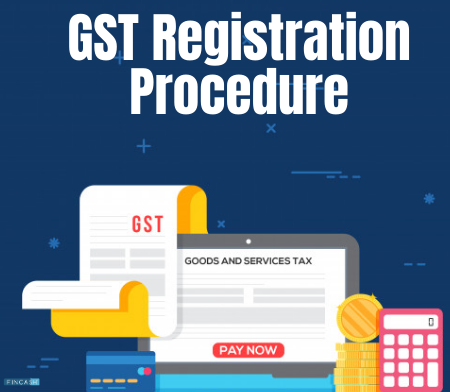Why Singapore GST Registration is Vital for Your Startup
Why Singapore GST Registration is Vital for Your Startup
Blog Article
Making The Most Of Tax Efficiency: Expert Tips on Navigating the GST Registration Maze for Small Companies
Browsing the detailed landscape of Goods and Services Tax Obligation (GST) enrollment can be a labyrinthine task for local business aiming to optimize their tax obligation effectiveness. Understanding the qualification standards, thorough paperwork demands, strategic timing factors to consider, and experienced registration procedure ideas can significantly impact a business's financial standing. Conformity with GST guidelines is critical, and sticking to finest practices can simplify procedures and prevent prospective mistakes. In this discussion, we will certainly explore experienced understandings and workable advice that can equip tiny organizations to browse the GST registration maze successfully and enhance their tax effectiveness.
Eligibility Standards
Eligibility demands for Local business GST Enrollment include details criteria that companies need to fulfill to adhere to tax guidelines. To get GST registration, a service needs to have a yearly turnover exceeding the threshold established by the tax obligation authorities, which varies by nation. In addition, businesses involved in inter-state supply of products or services, or those selling items online, may be needed to sign up for GST, regardless of their turn over. It is important for companies to precisely establish their qualification based upon these turn over limits to stay clear of penalties for non-compliance. Singapore GST Registration.

Documents Needs
To effectively finish the procedure of GST registration, small companies must guarantee they have all required documentation in order. The called for documentation generally includes proof of company registration or consolidation, identification and address evidence of the service owner, photos, savings account details, and evidence of the primary area of company. In addition, services need to provide details of their organization activities, consisting of the services or products provided. It is important to ensure that all papers are precise, up to date, and in the defined format to avoid hold-ups or denials during the enrollment procedure.
Besides the necessary documents, businesses may also be required to submit extra information based on their certain conditions. This can consist of papers associated with collaborations, the consent of signatures, or any kind of various other pertinent agreements. Maintaining all essential documents arranged and easily available can simplify the enrollment process and help businesses adhere to the needs successfully - Singapore GST Registration. Failing to supply the needed documentation may lead to delays or perhaps rejection of the GST enrollment application. Consequently, thorough focus to information and adherence to the paperwork guidelines are essential for an effective GST registration process for local business.
Timing Considerations
Thinking about the important documents demands have been diligently resolved, the next critical element for tiny businesses beginning on the GST enrollment process is the calculated management of timing factors to consider. Timing plays an essential role in next page GST registration, influencing not only important site compliance yet also monetary elements of business. Small companies require to carefully prepare the timing of their GST enrollment to make the most of advantages and decrease potential dangers.

Moreover, organizations must align the timing of their GST enrollment with their functional preparedness. Appropriate prep work, such as updating bookkeeping systems and training staff, is necessary to perfectly incorporate GST needs right into everyday operations. By purposefully handling timing factors to consider, small companies can browse the GST registration procedure effectively and optimize their tax obligation performance.
Registration Refine Tips
Effectively browsing the GST registration process needs little businesses to carry out tactical and positive registration procedure tips. This includes organization registration files, evidence of address, financial institution statements, and recognition evidence of the business owners.
In addition, understanding the limits and demands for GST enrollment based upon the specific state or territory where the service runs is necessary. Some states have different turnover thresholds that activate required registration, so being informed regarding these limits can aid click to find out more organizations plan ahead.
Another important suggestion is to think about seeking professional support from accounting professionals or tax obligation experts that focus on GST enrollment. Their experience can enhance the process, reduce errors, and make sure conformity with all guidelines.
Conformity Best Practices
Small businesses must focus on compliance to prevent charges and preserve a great standing with tax obligation authorities. Small business owners need to consistently review government guidelines and look for specialist advice if needed to ensure they are satisfying all needs. By including these compliance ideal practices into their procedures, tiny companies can navigate the complexities of GST enrollment with self-confidence and performance.
Conclusion
Finally, small companies can browse the GST enrollment puzzle by guaranteeing they fulfill qualification standards, collect required documentation, think about timing ramifications, comply with registration process tips, and stick to conformity ideal techniques. By optimizing tax obligation effectiveness with correct GST registration, businesses can boost their economic monitoring and operations.
Navigating the intricate landscape of Goods and Services Tax (GST) enrollment can be a labyrinthine job for small businesses intending to maximize their tax performance.Qualification demands for Small Company GST Registration incorporate specific criteria that organizations need to satisfy to comply with tax obligation policies. The needed paperwork usually includes evidence of company registration or identity, address and unification evidence of the company owner, photos, bank account information, and evidence of the major area of company. Furthermore, organizations need to give details of their organization activities, consisting of the goods or solutions supplied.Effectively browsing the GST registration procedure requires tiny companies to apply proactive and tactical enrollment procedure pointers.
Report this page